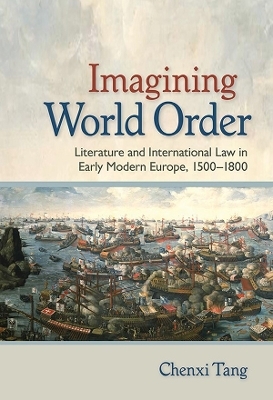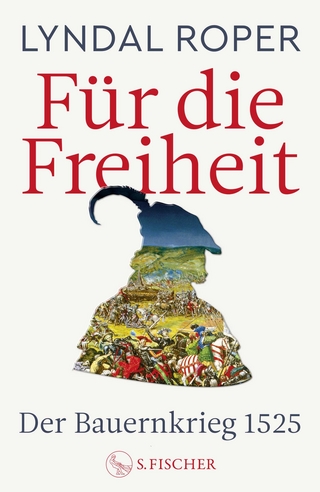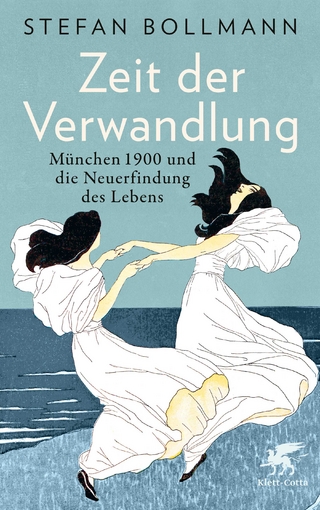
Imagining World Order
Cornell University Press (Verlag)
978-1-5017-1691-1 (ISBN)
In early modern Europe, international law emerged as a means of governing relations between rapidly consolidating sovereign states, purporting to establish a normative order for the perilous international world. However, it was intrinsically fragile and uncertain, for sovereign states had no acknowledged common authority that would create, change, apply, and enforce legal norms. In Imagining World Order, Chenxi Tang shows that international world order was as much a literary as a legal matter. To begin with, the poetic imagination contributed to the making of international law. As the discourse of international law coalesced, literary works from romances and tragedies to novels responded to its unfulfilled ambitions and inexorable failures, occasionally affirming it, often contesting it, always uncovering its problems and rehearsing imaginary solutions.
Tang highlights the various modes in which literary texts—some highly canonical (Camões, Shakespeare, Corneille, Lohenstein, and Defoe, among many others), some largely forgotten yet worth rediscovering—engaged with legal thinking in the period from the sixteenth to the eighteenth century. In tracing such engagements, he offers a dual history of international law and European literature. As legal history, the book approaches the development of international law in this period—its so-called classical age—in terms of literary imagination. As literary history, Tang recounts how literature confronted the question of international world order and how, in the process, a set of literary forms common to major European languages (epic, tragedy, romance, novel) evolved.
Chenxi Tang is Professor of German, University of California at Berkeley. He is the author of The Geographic Imagination of Modernity.
Acknowledgments
Introduction
International Law
Literary Approaches to International World Order
A Dual History of International Law and European Literature
1. The Old World Order Dissolving
Universal Laws in Flux: (Neoscholastic Jurisprudence)
Cosmic Order Disturbed: (Camões's Os Lusíadas, Reason of State)
The Beginnings of Public International Law: (Gentili, Suárez, Grotius)
2. The Poetics of International Legal Order
Treaty and Allegory in the Renaissance
The Founding Narratives of International Legal Personality: (Grotius, Hobbes, Leibniz)
The Founding Narratives of International Society: (Grotius, Leibniz)
Spectacles of International Order
The Drama of International Society
3. International Order as Tragedy
The Renaissance of Tragedy and the Problem of International Order
The Sovereign Will and the Tragic Form: (Marlowe's Tamburlaine, Shakespeare's King John)
A Tragicomic Intermezzo: The Shapes of World Order in Shakespeare's Romances
The Tragedy of Reason of State: (Lohenstein)
The Tragedy of Marriage Alliance: (Corneille)
International Order Through Tragic Experience
4. International Order as Romance
The Romance Form and World Order: (The Greek Romance, Barclay's Argenis)
The Crisis of Political Romance in the Mid-Seventeenth Century: (Herbert)
The Apotheosis and Extinction of Political Romance: (Anton Ulrich, Leibniz)
5. The Divergence Between International Law and Literature around 1700
The Depersonalization of the State: (Gryphius, Milton)
The Birth of the Private Individual: (Milton, Racine)
International Law as a Field of Expert Knowledge
Literature and the Private Individual
6. The Novel and International Order in the Eighteenth Century
The Fictional Construction of Society: Ius Naturae et Gentium
The Fictional Construction of Society: Poetics of the Novel
Transnational Commercial World Order: (Defoe)
Sentimental World Order: (Gellert, Sterne)
Cosmopolitan World Order: (Wieland, Goethe, Kant)
Epilogue
Notes
References
Index
| Erscheinungsdatum | 02.11.2018 |
|---|---|
| Zusatzinfo | 4 Halftones, black and white |
| Verlagsort | Ithaca |
| Sprache | englisch |
| Maße | 152 x 229 mm |
| Gewicht | 907 g |
| Themenwelt | Geschichte ► Allgemeine Geschichte ► Neuzeit (bis 1918) |
| Geisteswissenschaften ► Geschichte ► Regional- / Ländergeschichte | |
| Geschichte ► Teilgebiete der Geschichte ► Militärgeschichte | |
| Geisteswissenschaften ► Sprach- / Literaturwissenschaft ► Anglistik / Amerikanistik | |
| Geisteswissenschaften ► Sprach- / Literaturwissenschaft ► Literaturgeschichte | |
| Recht / Steuern ► Rechtsgeschichte | |
| ISBN-10 | 1-5017-1691-3 / 1501716913 |
| ISBN-13 | 978-1-5017-1691-1 / 9781501716911 |
| Zustand | Neuware |
| Informationen gemäß Produktsicherheitsverordnung (GPSR) | |
| Haben Sie eine Frage zum Produkt? |
aus dem Bereich


